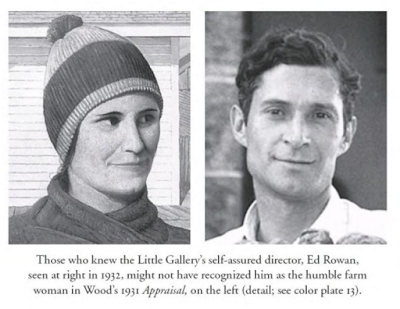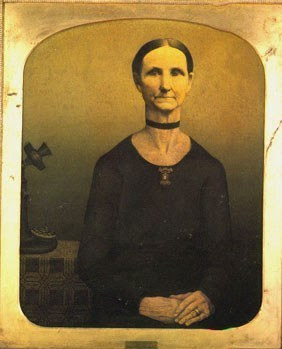The Expatriates is Janice Y. K. Lee's second novel. (Her first, The Piano Teacher, received glowing reviews from editors if not from all readers.) This new effort is a compelling read about affluent ex-pats in bustling, present-day Hong Kong. The city is temporary home to thousands of lawyers and business-people, who, along with their families, are all benefiting quite nicely from the global economy.
Set within -- but also in stark relief against -- this backdrop of monied privilege are the troubled lives of three very different women, from whose rotating vantage point the novel is narrated.
Mercy, a young Korean-American Columbia grad, has come to Hong Kong to try to find the big, fancy job that has thus far eluded her back in the States. Hilary, a 38-year-old with a troubled, or, more accurately, receding marriage, is unable to conceive the child she so wants. Margaret, the beautiful, kind, nearly impeccable landscape architect, has left her career behind to accompany her husband to Hong Kong, where the whole family suffers a tragic event that leaves them (and this reader) reeling.
I enjoyed this novel very much. Unlike the characters in too many novels these days, these women are sympathetic, although not always entirely likable. Like all of us, they make mistakes and they pay the price. The novel resolves nicely too, in a realistic way that may not satisfy those who crave really happy endings but doesn't leave the reader at all hopeless either. The author does a wonderful job of evoking the lifestyles of those for whom Asia is both workplace and playground, while at the same time demonstrating that money is often of very little value when it comes to solving serious personal problems. In a money-mad age, we sometimes forget that last bit.
~Ann, Adult Services
Sunday, March 27, 2016
Thursday, March 24, 2016
Throwback Thursday: Library Job Has Amusing Side
While working on Carnegie-Stout Public Library's project involving archiving digital scans of the Dubuque Telegraph Herald I came across this little tidbit:
As I read this article from October 7, 1949, I thought to myself "this still happens today". Despite nearly 67 years of progress, a librarian still provides reader's advisory and often gets to decipher vague and confusing book descriptions in an attempt to find a specific book.
A few years ago, one of my coworkers found a birthday card to his mother in a book on the shelf. I myself have found cancelled checks, airplane boarding passes, letters, greeting cards, utility bills and shopping lists. Just a few of the many random things used as a bookmark. Yep, working in a library still has an amusing side.
~Amy, Adult Services
As I read this article from October 7, 1949, I thought to myself "this still happens today". Despite nearly 67 years of progress, a librarian still provides reader's advisory and often gets to decipher vague and confusing book descriptions in an attempt to find a specific book.
A few years ago, one of my coworkers found a birthday card to his mother in a book on the shelf. I myself have found cancelled checks, airplane boarding passes, letters, greeting cards, utility bills and shopping lists. Just a few of the many random things used as a bookmark. Yep, working in a library still has an amusing side.
~Amy, Adult Services
Tuesday, March 22, 2016
Monday, March 21, 2016
Staff Review: The Man Who Loved Only Numbers by Paul Hoffman
I come from a family of book lovers, but it isn't often that we all love the same book. The Man Who Loved Only Numbers happens to be one of the few. Paul Hoffman's biography of the prolific and eccentric mathematician Paul Erdős is a fascinating read, even for someone like me who finds math a less than engaging topic. Reading about Erdős and his colleagues in this book, I was able to understand how a person could devote their life to a pursuit of mathematical truth.
I also recommend checking out Feynman by Jim Ottaviani and Leland Myrick, a graphic novel biography of the equally eccentric physicist Richard Feynman.
~Sarah, Adult Services
Tags:
Biography,
csplreviews,
FY16,
History,
math,
Science,
Staff Reviews
Friday, March 18, 2016
Victorian Survival is Just Weird
I enjoyed the article "125 years of a LEGACY: Local artists, aficionados celebrate Grant Wood" by Tia Carol Jones in yesterday’s Telegraph Herald. Here's some more info.
On February 18, 1942, a few days after Grant Wood died, the TH described how years earlier the Carnegie-Stout Public Library Board purchased The Appraisal for $350 and Victorian Survival for $800.
At that time in 1934, the article says, the library board also had the opportunity to purchase Wood's satirical painting, Daughters of Revolution, but they decided it was too controversial, and actor Edward G. Robinson ended up buying it.
While The Appraisal below doesn't seem controversial, the library board might not have known that the woman holding the chicken in the painting was actually a man, Cedar Rapids gallery director Ed Rowan.
The other painting, Victorian Survival, was one of Grant Wood's favorites. He would only sell it to the library board if they agreed in advance to lend it back to him for future exhibitions. Thankfully, they agreed.
There are different theories about Victorian Survival. The main one seems to be that the old-fashioned lady resents the new-fangled telephone. But could it be the other way around? Is she trying to hide her fondness for it?
Art professor R. Tripp Evans puts it this way in his 2010 biography of Grant Wood:
On February 18, 1942, a few days after Grant Wood died, the TH described how years earlier the Carnegie-Stout Public Library Board purchased The Appraisal for $350 and Victorian Survival for $800.
At that time in 1934, the article says, the library board also had the opportunity to purchase Wood's satirical painting, Daughters of Revolution, but they decided it was too controversial, and actor Edward G. Robinson ended up buying it.
While The Appraisal below doesn't seem controversial, the library board might not have known that the woman holding the chicken in the painting was actually a man, Cedar Rapids gallery director Ed Rowan.
The other painting, Victorian Survival, was one of Grant Wood's favorites. He would only sell it to the library board if they agreed in advance to lend it back to him for future exhibitions. Thankfully, they agreed.
There are different theories about Victorian Survival. The main one seems to be that the old-fashioned lady resents the new-fangled telephone. But could it be the other way around? Is she trying to hide her fondness for it?
Art professor R. Tripp Evans puts it this way in his 2010 biography of Grant Wood:
Lying in shadow behind Aunt Tillie, whose concealed right hand itself indicates a note of treachery, the telephone is more accomplice than opponent--an offstage voice, whispering something salacious (and apparently mortifying) into Aunt Tillie's overscaled ear.
I agree with Tim Olson's assessment, "Victorian Survival is just weird." Weird and cool! And we're so lucky to have it in Dubuque!
~Mike, Adult Services
---
Note:
Grant Wood visited Dubuque several times. Here's an announcement of one visit from the TH arts column, "'Mid Pallettes and Clefs," from March 6, 1932:
I wonder if this irregular column, which sometimes was signed by "Be-Be," might have been written by John Mulgrew, the original "Jazbo of Old Dubuque."
~Mike, Adult Services
---
Note:
Grant Wood visited Dubuque several times. Here's an announcement of one visit from the TH arts column, "'Mid Pallettes and Clefs," from March 6, 1932:
I wonder if this irregular column, which sometimes was signed by "Be-Be," might have been written by John Mulgrew, the original "Jazbo of Old Dubuque."
Sunday, March 13, 2016
Staff Review: An Unnecessary Woman by Rabih Alameddine
 An Unnecessary Woman by Rabih Alameddine is a novel like no other I have read. The book kept calling to me from the library shelf, so I finally picked it up. Rifling through it, I saw exotic references to writers, composers, artists, and philosophers, people like W.G. Sebald, Fernando Pessoa, Javier Marias, Michel Foucault, and dozens of others. Not your everyday novel. The author appears to have read vast galaxies of books.
An Unnecessary Woman by Rabih Alameddine is a novel like no other I have read. The book kept calling to me from the library shelf, so I finally picked it up. Rifling through it, I saw exotic references to writers, composers, artists, and philosophers, people like W.G. Sebald, Fernando Pessoa, Javier Marias, Michel Foucault, and dozens of others. Not your everyday novel. The author appears to have read vast galaxies of books.The story is brought to you in the first person by the unnecessary woman of the title, Aaliya, a 72-year-old solitary, long divorced, who worked all her life in a bookstore. For many of those years she also translated books into Arabic: books by Leo Tolstoy, Roberto Bolano, Italo Calvino, Knut Hamsun, Jose Saramago, and over thirty more. At the start of each year, she enjoys the quiet thrill of selecting the coming year's translation. Once the translation is finished, she boxes it up; it goes unseen and unknown by the world. Her manuscripts fill cartons and rooms.
Her highbrow literary tastes form the skeletal structure of the book. She weaves anecdotes about books and authors through her musings about her own life: her work, her habits, her "impotent insect" of an ex-husband, the manner in which she acquired her AK-47, her less than loving relationship with her mother, the suicide of her best friend.
Aaliya's colorful, acerbic, highly-opinionated narration brings Beirut, her hometown, to vivid life in all its splendor and catastrophe, for she has lived through long years of Civil War and sectarian strife (hence the bedside AK-47). Aaliya certainly knows her own mind yet she also questions a lot, she doesn't suffer fools gladly, and she definitely does not mince words.
An Unnecessary Woman is a journey through the carefully examined life of a highly intelligent and peppery woman, an outwardly unremarkable woman who has lived her whole life for the love of literature, language, music, art, and ideas. And, as a bonus, the novel ends on a genuinely uplifting note.
~Ann, Adult Services
Subscribe to:
Comments (Atom)







